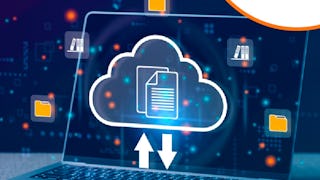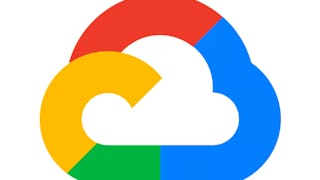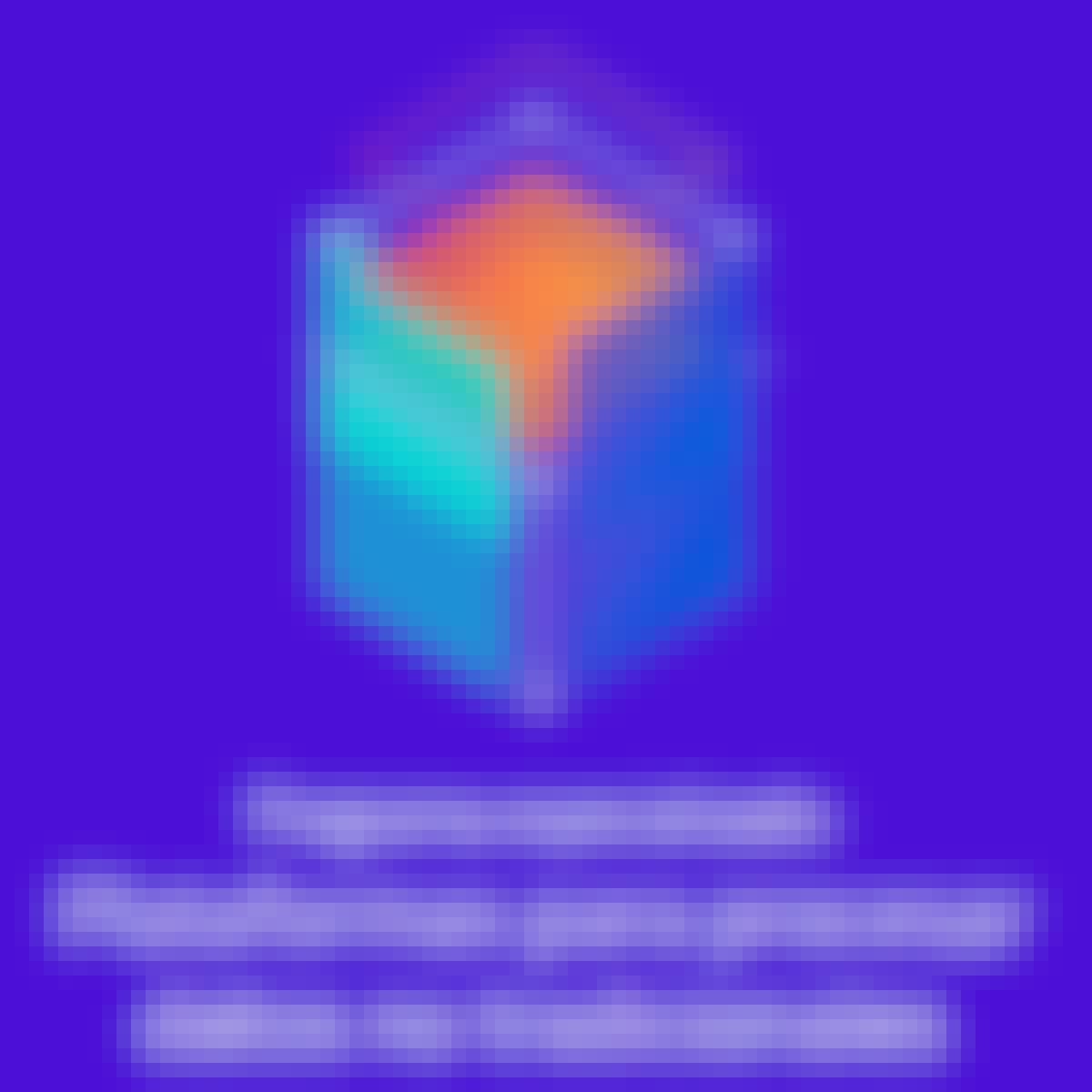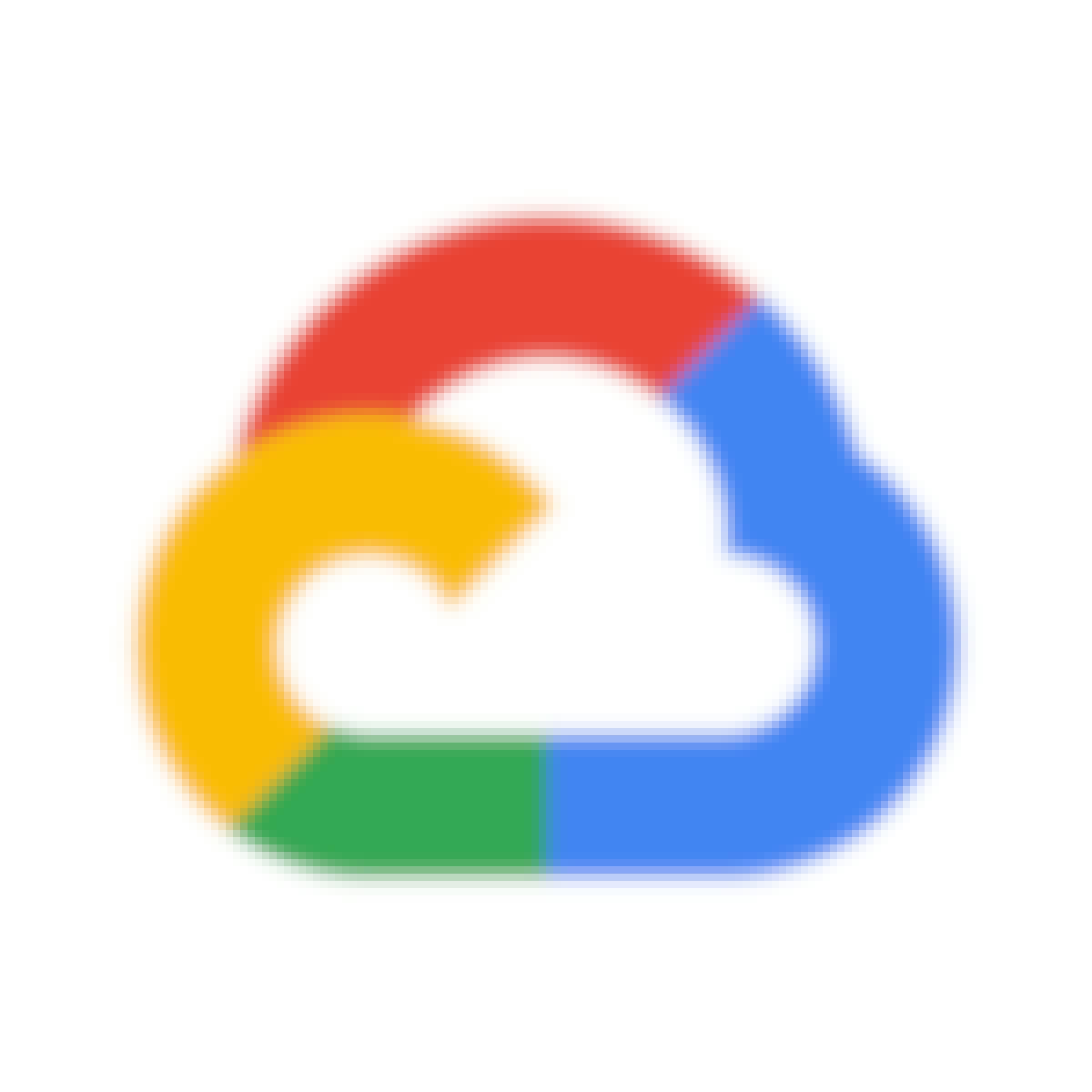- Browse
- Mongodb
Results for "mongodb"
 Status: PreviewPreview
Status: PreviewPreviewSkills you'll gain: Amazon Web Services, Database Administration, Database Design, Amazon CloudWatch, Amazon DynamoDB, Amazon Redshift, Data Migration, Database Architecture and Administration, Database Management, Database Management Systems, Disaster Recovery, Databases, Relational Databases, AWS Identity and Access Management (IAM), NoSQL, AWS CloudFormation, Cloud Security, Key Management, Encryption, Amazon S3
5·Rating, 5 out of 5 stars37 reviewsBeginner · Course · 1 - 3 Months
 Status: Free TrialFree Trial
Status: Free TrialFree TrialSkills you'll gain: Cloud Computing Architecture, Data Import/Export, MySQL, AWS Identity and Access Management (IAM)
Intermediate · Course · 1 - 3 Months
 Status: FreeFree
Status: FreeFreeSkills you'll gain: Cloud-Native Computing, Unstructured Data, Go (Programming Language), Web Servers, MySQL, Web Scraping, Server Side, Kubernetes, Web Applications, Back-End Web Development, Software Development, Linux, Database Software, Relational Databases
Intermediate · Guided Project · Less Than 2 Hours

Skills you'll gain: Dashboard, Kibana, Google Cloud Platform, Cloud Computing, Data Import/Export, Financial Data, Mainframe Computing, Dataflow, Big Data, Exploratory Data Analysis, SQL, Data Analysis
Beginner · Project · Less Than 2 Hours

Skills you'll gain: Kubernetes, Google Cloud Platform, Containerization, Time Series Analysis and Forecasting, Cloud Platforms, Data Store
Intermediate · Project · Less Than 2 Hours
 Status: NewNewStatus: Free TrialFree Trial
Status: NewNewStatus: Free TrialFree TrialSkills you'll gain: Restful API, Full-Stack Web Development, React.js, Application Programming Interface (API), Spring Boot, Front-End Web Development, Web Applications, MongoDB, UI Components, JSON, NoSQL, Data Access
Intermediate · Course · 1 - 4 Weeks
 Status: Free TrialFree TrialU
Status: Free TrialFree TrialUUniversidad de los Andes
Skills you'll gain: Spatial Analysis, NoSQL, Spatial Data Analysis, Geospatial Mapping, Geographic Information Systems, Big Data, MongoDB, File Systems, Databases, Apache Hadoop, Distributed Computing, Data Architecture, Cloud Computing, Apache Spark, Public Cloud, Database Systems, Data Processing, Scalability, Environmental Monitoring, Image Analysis
4.3·Rating, 4.3 out of 5 stars11 reviewsBeginner · Specialization · 3 - 6 Months
 G
GGoogle Cloud
Skills you'll gain: Database Management, Databases, Database Administration, Command-Line Interface, Operational Databases, Google Cloud Platform, PostgreSQL
Beginner · Project · Less Than 2 Hours
 G
GGoogle Cloud
Skills you'll gain: Database Administration, PostgreSQL, Operational Databases, Database Architecture and Administration, Database Management, Data Storage Technologies, Disaster Recovery, System Monitoring, Performance Tuning
Beginner · Project · Less Than 2 Hours
 Status: NewNewStatus: Free TrialFree Trial
Status: NewNewStatus: Free TrialFree TrialSkills you'll gain: Restful API, Spring Boot, Full-Stack Web Development, React.js, IntelliJ IDEA, Application Programming Interface (API), Object-Relational Mapping, JavaScript Frameworks, Integrated Development Environments, Front-End Web Development, YAML, Web Applications, Web Development Tools, Back-End Web Development, Data Access, User Interface (UI), MongoDB, UI Components, Application Frameworks, Databases
4.9·Rating, 4.9 out of 5 stars10 reviewsIntermediate · Specialization · 1 - 4 Weeks
 Status: Free TrialFree Trial
Status: Free TrialFree TrialSkills you'll gain: Docker (Software), Web Applications, Containerization, Virtual Networking, CI/CD, YAML, Service Management, Capacity Management, Command-Line Interface
Intermediate · Course · 1 - 3 Months
 Status: PreviewPreview
Status: PreviewPreviewSkills you'll gain: Operational Databases, NoSQL, Real Time Data, Scalability, Database Design, Application Deployment, Data Infrastructure, Big Data, Data Manipulation, Performance Tuning, Data Modeling, Distributed Computing, Data Storage Technologies
Beginner · Course · 1 - 4 Weeks
Searches related to mongodb
In summary, here are 10 of our most popular mongodb courses
- AWS Database Specialty Certification: EDUCBA
- AWS Cloud for Data and Database Migration: Edureka
- Linux Daemon with Go: Build a Webpage Database Crawler: Coursera
- Offloading Financial Mainframe Data into BigQuery and Elastic Search: Google Cloud
- Using OpenTSDB to Monitor Time-Series Data on Cloud Platform: Google Cloud
- Full-Stack React with Spring Boot: Unit 3: Pearson
- Plataformas para procesar datos no tradicionales: Universidad de los Andes
- AlloyDB - Database Fundamentals: Google Cloud
- Administering an AlloyDB Database: Google Cloud
- Full-Stack React with Spring Boot: Pearson










